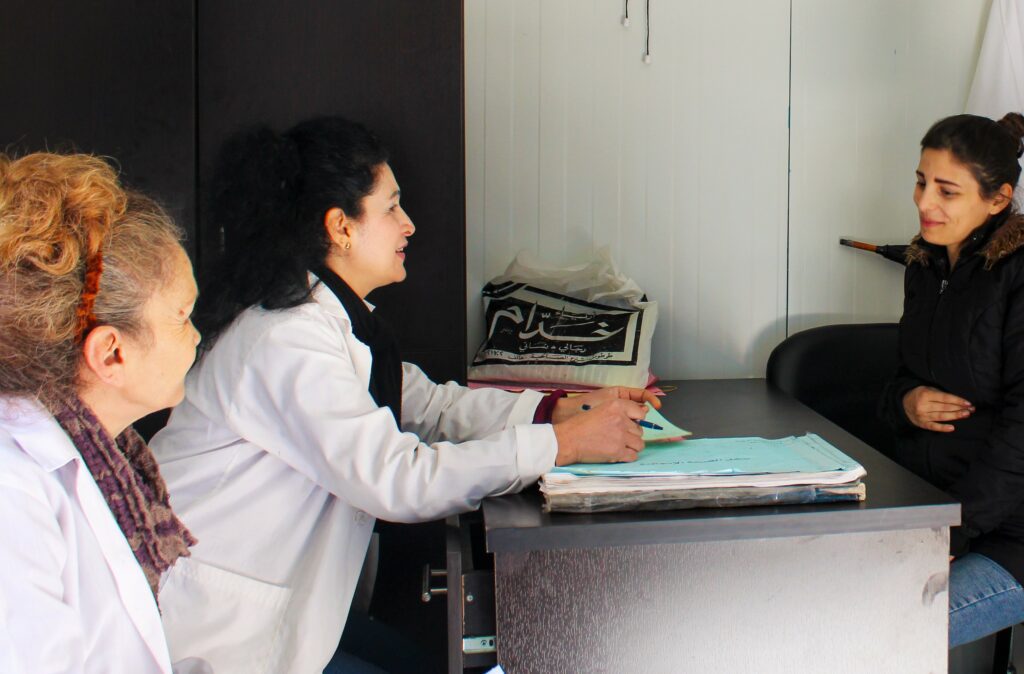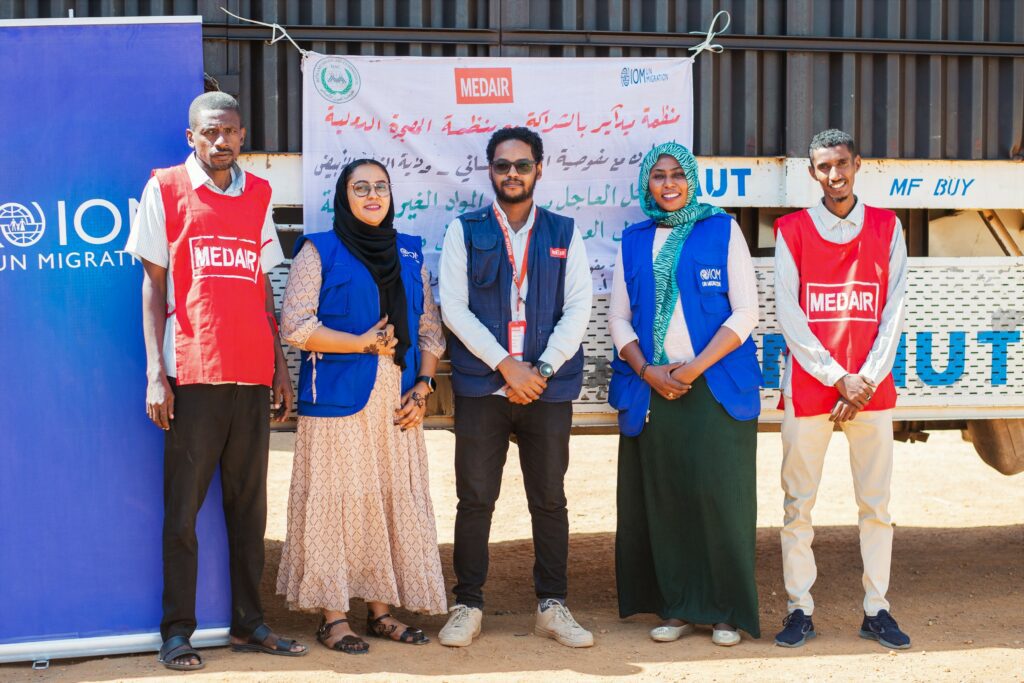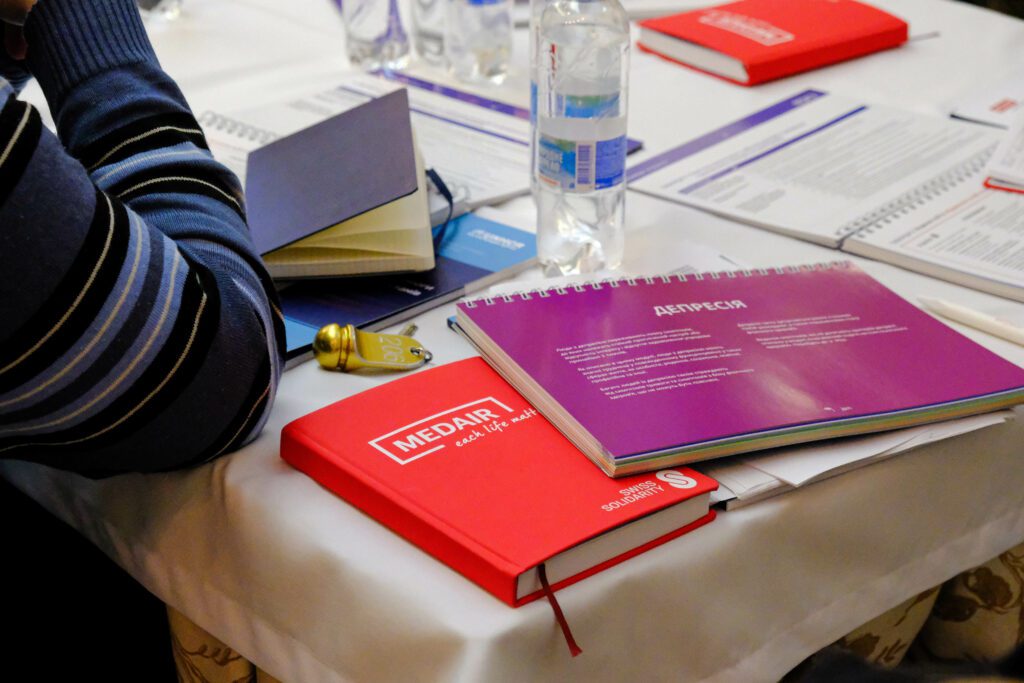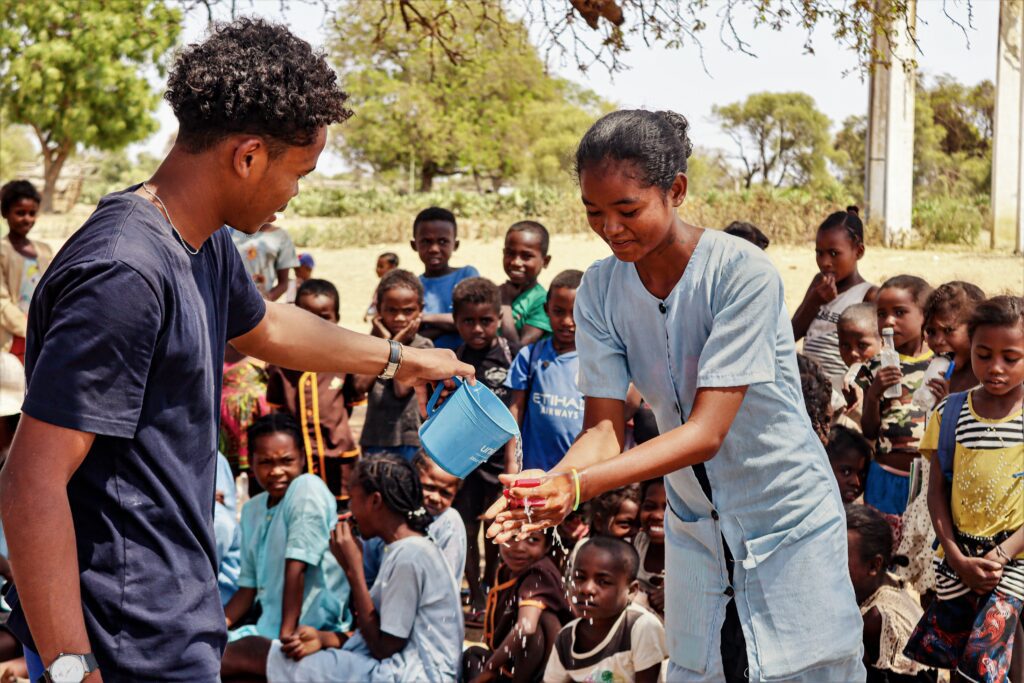In the midst of this ongoing crisis, Medair is providing health care and critical help to thousands of displaced families and their host communities.
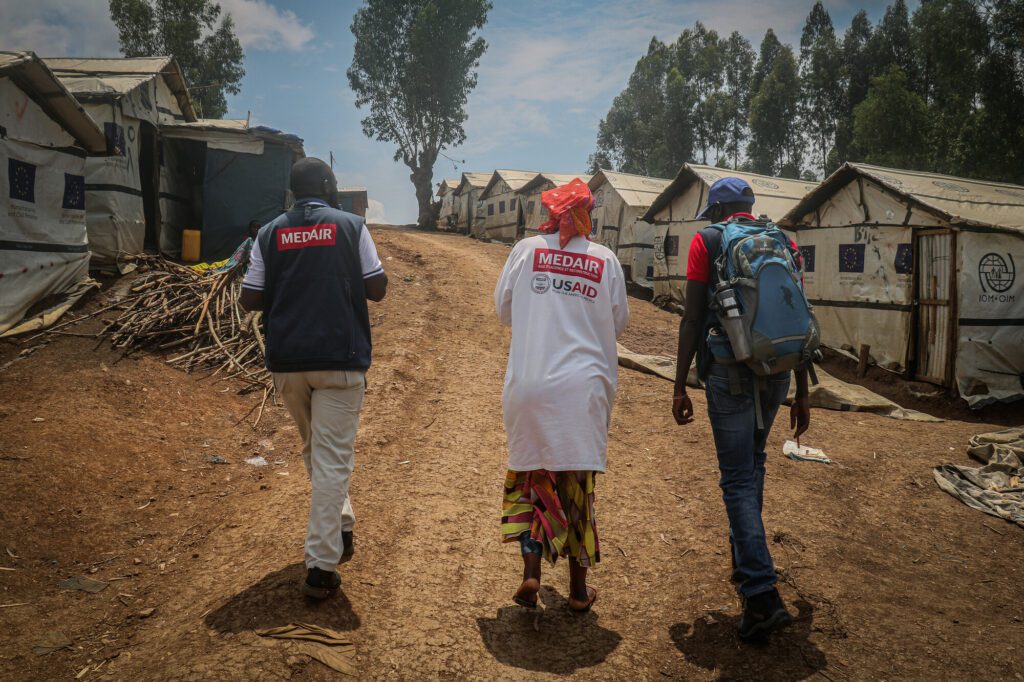
Medair staff visit a camp for internally displaced people, situated next to a Medair-supported health facility.
In Congo, more than 5.2 million people – including an estimated 3 million children – have been displaced from their homes. The country hosts the second largest number of internally displaced persons in the world.
This has a significant impact on host communities, which is why Medair also ensures local populations have access to the same services.
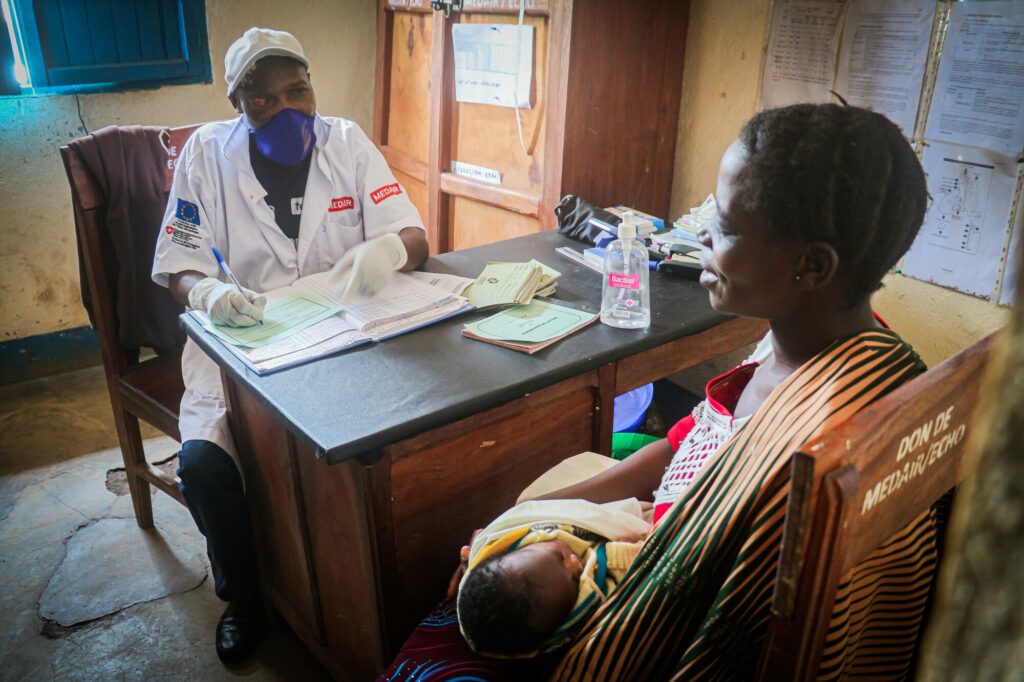
Eastern Congo has a large network of public health facilities and general hospitals. Medair works within these existing facilities by supporting local staff in delivering life-saving services.
“Our aim is to provide a multisectoral and holistic approach to each facility we partner with”, says Dr Onyango Okech, Health Project Manager with Medair. “Our focus is not only on primary health care, but also on nutritional treatment for malnourished children. We also install water, sanitation and hygiene structures to facilitate the running of the clinic.”
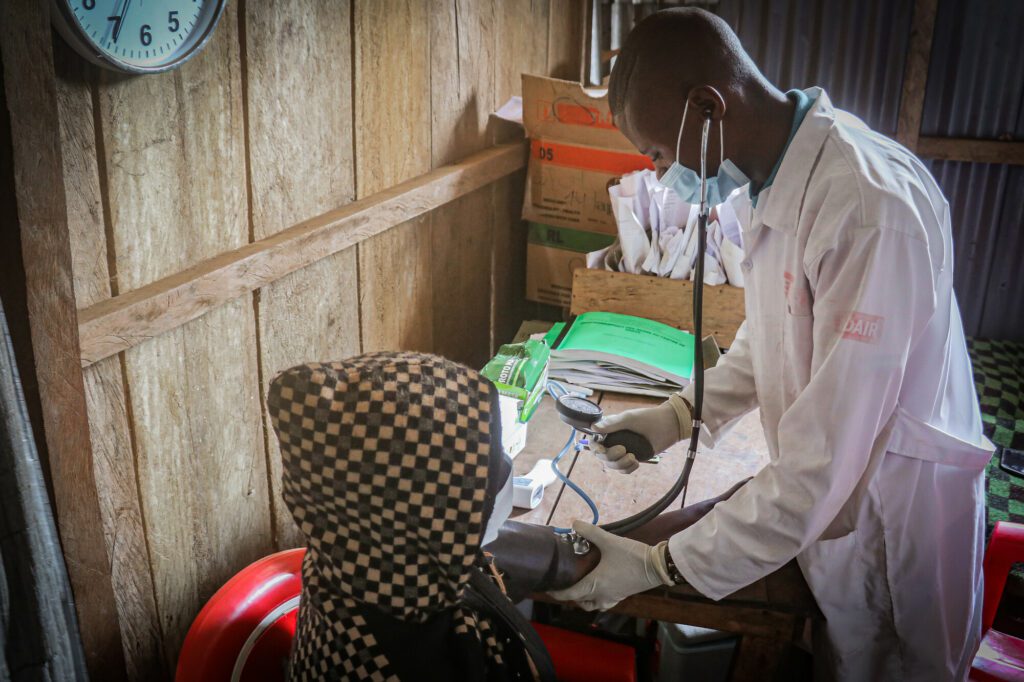
A clinician checks the blood pressure of a patient inside a Medair-supported health facility. Each facility receives between 500 and 2,000 patients per month, around half of whom are from displaced communities.
Services for displaced people are all provided free of charge: with no or very limited ways of earning an income, free health services are essential to help families stay healthy, and reduce the burden of mortality and morbidity within the community.
Antenatal care for pregnant women and a safe space for deliveries are also provided, with some facilities seeing up to 125 deliveries per month.
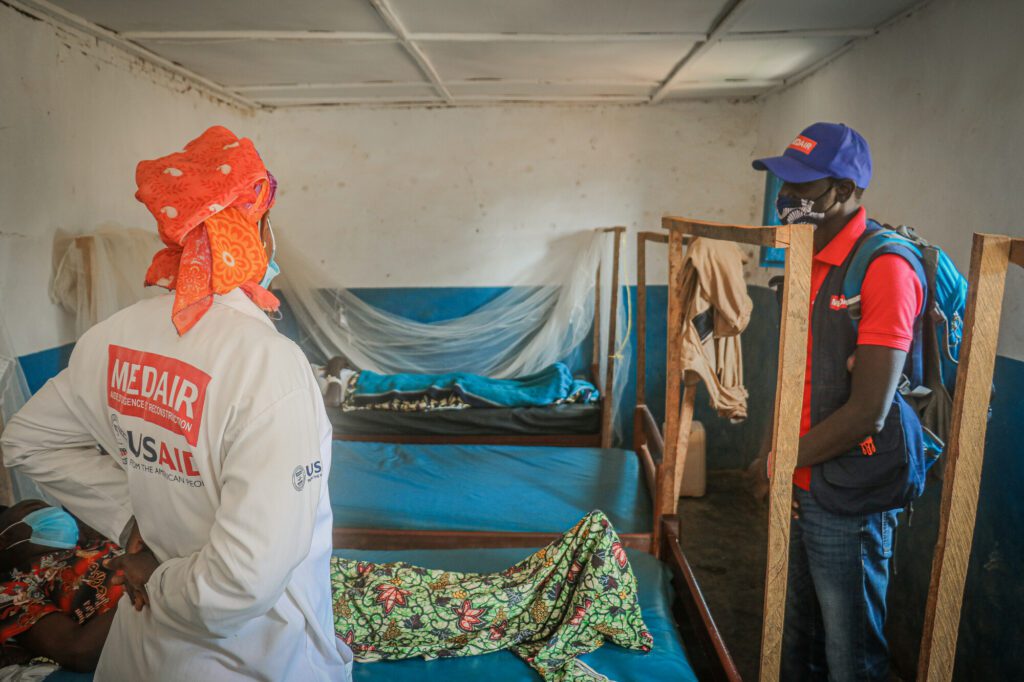
Dr Onyango and Georgine, Deputy Head Nurse, visit patients receiving medical care.
This part of Congo is prone to regular outbreaks of diseases, such as the plague, malaria, diarrhea or respiratory tract infections.
Malaria is particularly prevalent, and accounts for almost 40% of all new consultations in Medair-supported facilities. Overall, Congo has the second highest number of malaria cases and deaths in the world.
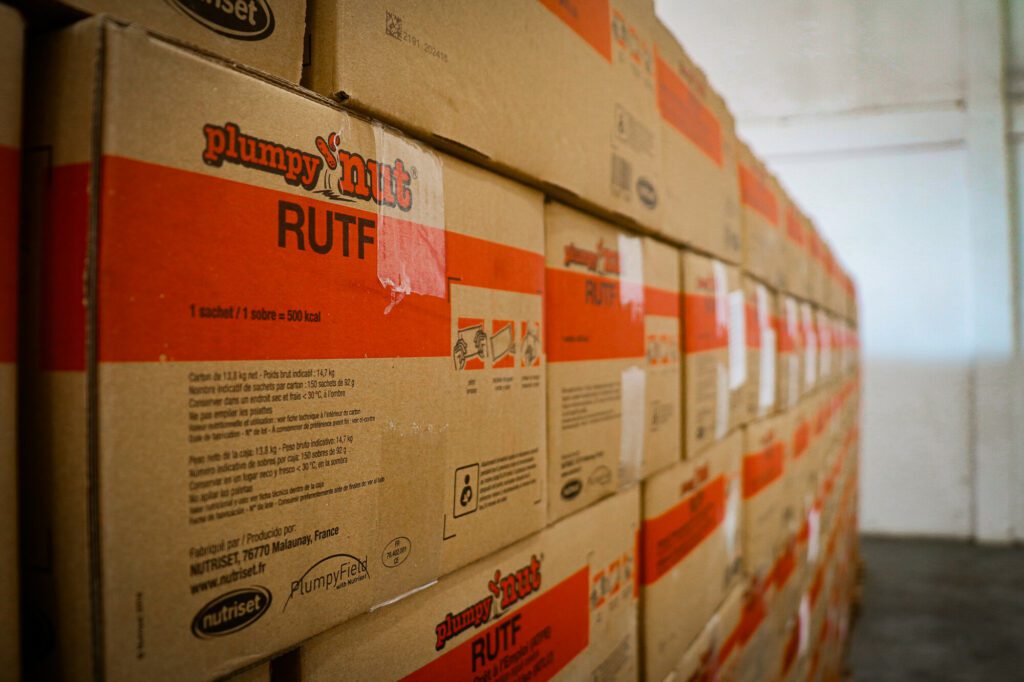
Supplies of Plumpy’NUT, a nutritional peanut paste given to treat malnutrition, are stocked and ready to be shipped to various health facilities across the country.
More than 3.4 million children under the age of five in DRC suffer from acute malnutrition, including at least 1 million with severe acute malnutrition (SAM).
Medair teams make sure that in every health facility, children under 5 get the treatment they need to overcome malnutrition. Cases with medical complications are referred to general hospitals.
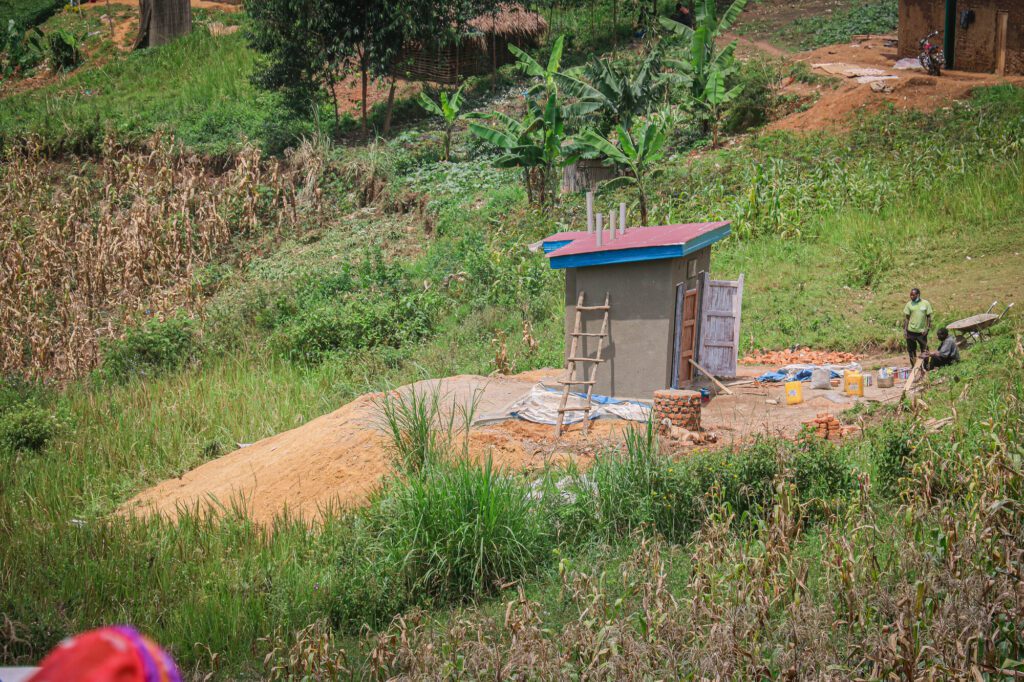
In addition to health and nutrition services, water, hygiene and sanitation facilities – such as latrines, waste pits and safe drinking water points – are built or rehabilitated inside each facility.
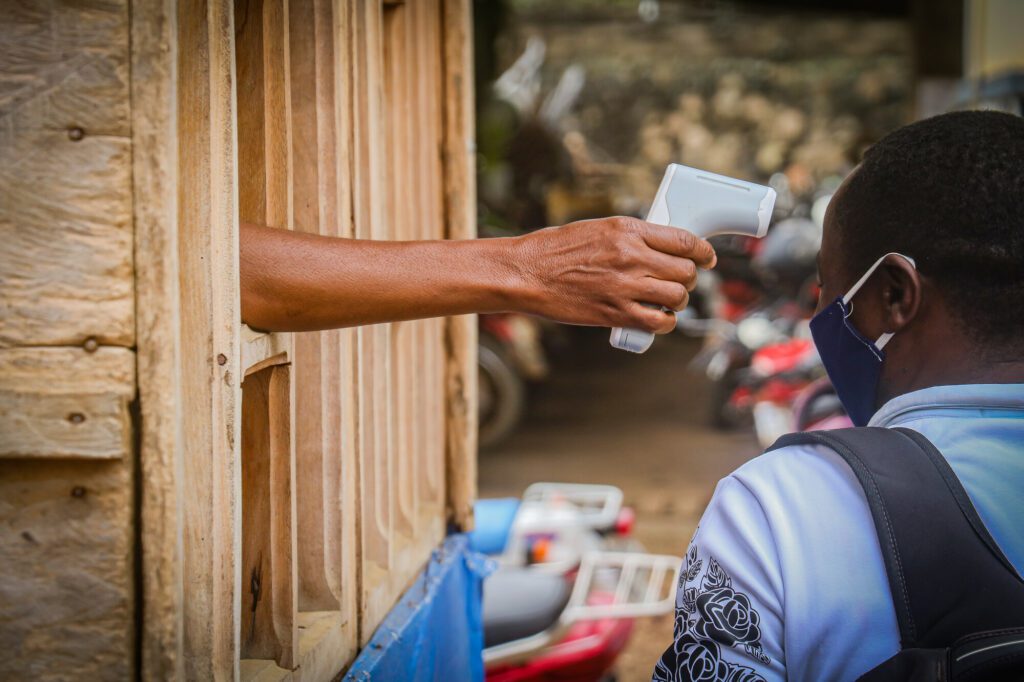
The COVID-19 pandemic has not spared DR Congo, and Medair-supported facilities have had to adapt: “Our priority is to keep our patients and staff as safe as possible,” says Dr Onyango. “We have installed handwashing stations, we ask everyone to be masked, and we do regular temperature checks at triage points set up at the entrance to each facility.”
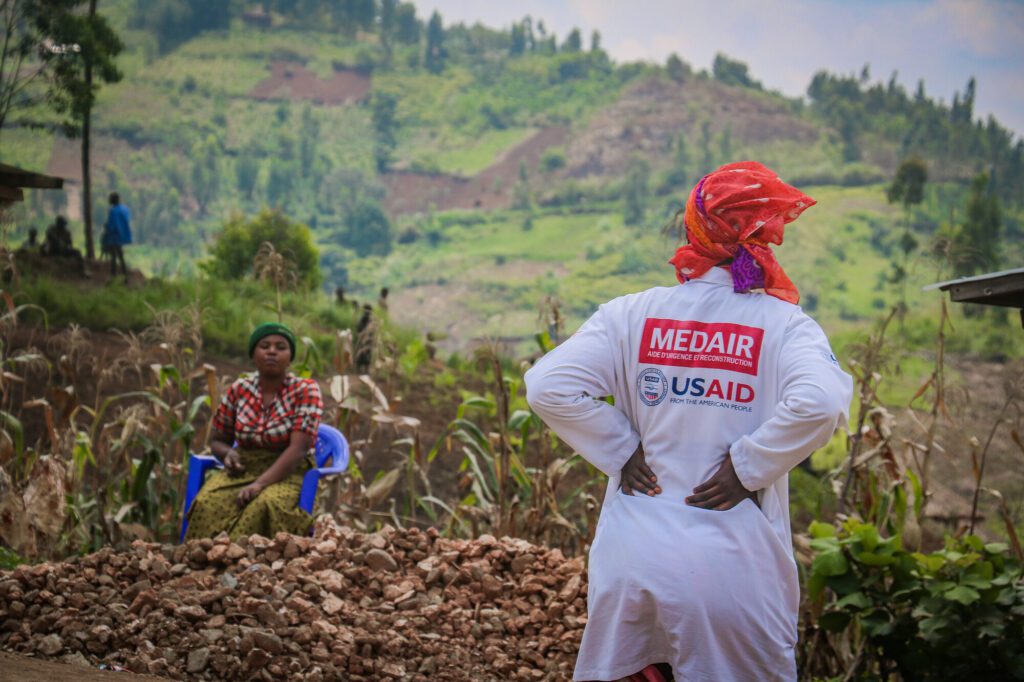
Georgine, Deputy Head Nurse, speaks with a member of the local community outside of a health facility.
“The impact of our action is visible and well appreciated by the various communities we support,” notes Dr Onyango. “Our Monitoring and Evaluation Teams regularly interview patients, gather their feedback and make recommendation to help us further improve our services. The working relationship with the community, with the various health authorities, and other humanitarian actors has been very positive and constructive.”
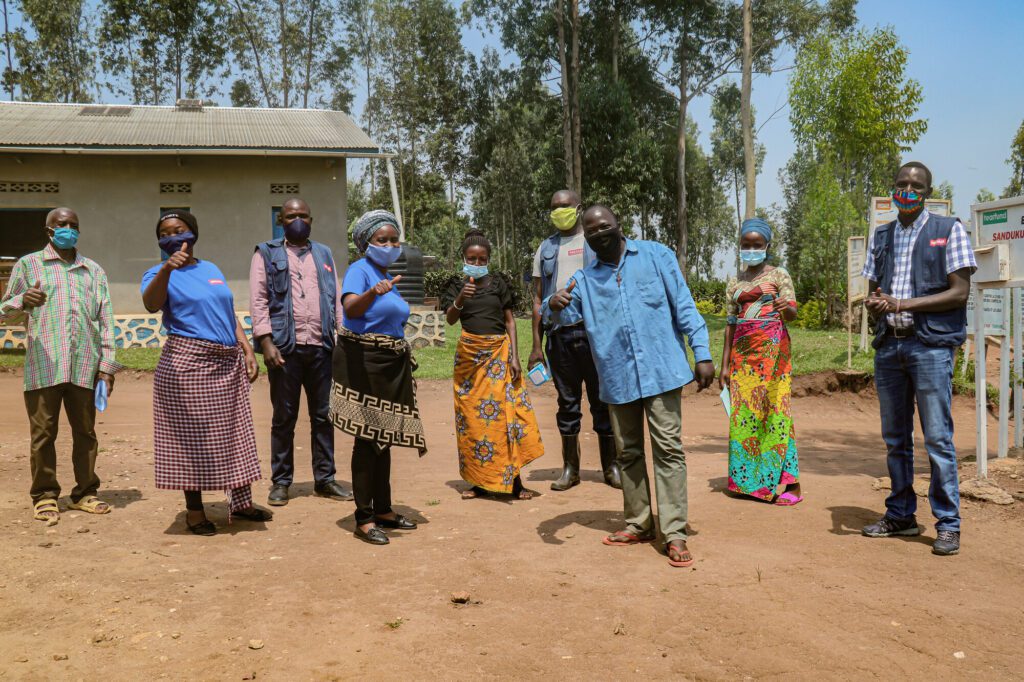
The DR Congo faces many crises, often far removed from global attention. By working hand-in-hand with local communities, Medair makes sure some of the most vulnerable communities in the country are not forgotten: “I am very encouraged by the level of community acceptance we see, and the general belief that Medair and its partners deliver on what they promise!” concludes Dr Onyango.
Medair has been present in DR Congo since 1996. Our work is supported by the United States’ Bureau for Humanitarian Assistance, the European Commission, the Swiss Agency for Development and Cooperation, as well as private donors.


